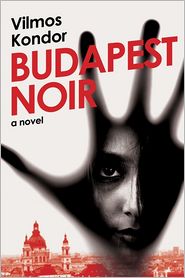
I guess the title tells it all, as in this book we do indeed have a Budapest Noir. However it’s not a modern day noir, since the events it describes take place in the famous city in 1936, just after the death of a populist leader who wanted to impose a fascist regime. The good Hungarian author, who was born in 1954, gives us a bleak view of the city, whose people seem to constantly walk on a tightrope between dream and desperation. On the one hand we have the politicians with their big words and never-ending promises, on the other we have the hopes of the poor for a better future, and finally we come face to face with an everyday reality that is so harsh that it offers most of the people nothing but an occasional smile, while filling them with sorrow and fear at the same time. It is in this city, and under these exact circumstances, that the main protagonist in the story, journalist Zsigmond Gordon, is looking for the next scoop; the big story that will make a small or bigger difference in people’s lives. Gordon is one of those reporters that enjoy nothing more than being on the hunt. He looks around him all the time, in search of something, anything; he moves across the city time and again and every now and then, in order to make things work, he uses, or gets used by, his sources in the police force. And he is one of those people who’ll do anything to tell the story, once he decides that it’s worth telling, even put his life on the line. It is exactly this particular weakness, if you can call it so, that a man called Vladimir Gellert, a police inspector and part-time friend of Gordon’s, will try to exploit. He’ll give him in an indirect way a story that he, a slave of the politicians whims, cannot properly investigate; and what a story it is! It all begins when the corpse of a young and beautiful woman is found in one of the most infamous areas in the city. The deceased doesn’t carry any document that can show who she really is, and the only thing they discover in her bag is a Jewish prayer book. Gordon, more curious than even, is determined to find out how come such a beautiful, seemingly educated and probably religious woman, ended up dead in a place like that. So he’ll start wandering around, meeting people and asking questions again and again, without receiving any clear answers. But he doesn’t give up. His stubborn investigation though lands him into trouble; not only because it seems to lead nowhere, but also because it gets some very important and thus powerful people, upset. Why doesn’t he simply give up? What will it take to make him back off? Is he willing to risk everything to solve the case? Well, about his personal safety he cares not, but there are some other people whose lives he cannot jeopardize. However, protecting them will not prove such an easy thing to do as his enemies always seem to be a step ahead. The author, using this crime as his stepping stone, moves ahead and leads the reader into an epoch of great change, as far as the history of central Europe is concerned. The picture he paints is gray to black; the city that in the eyes of the modern day traveler seems like a dreamscape here looks kind of nightmarish. He writes about prostitution, organized crime, the power games between the politicians, and about some people who are willing to do just about anything, to betray everything and everyone, in order to make things work their way. This is a book that could be read as a thriller, a chronicle, or even a social commentary. I’m sure that fans of crime fiction will enjoy it, but I’d also recommend it to everyone who’s interested in reading a good story. The genre is not an issue here.

No comments:
Post a Comment